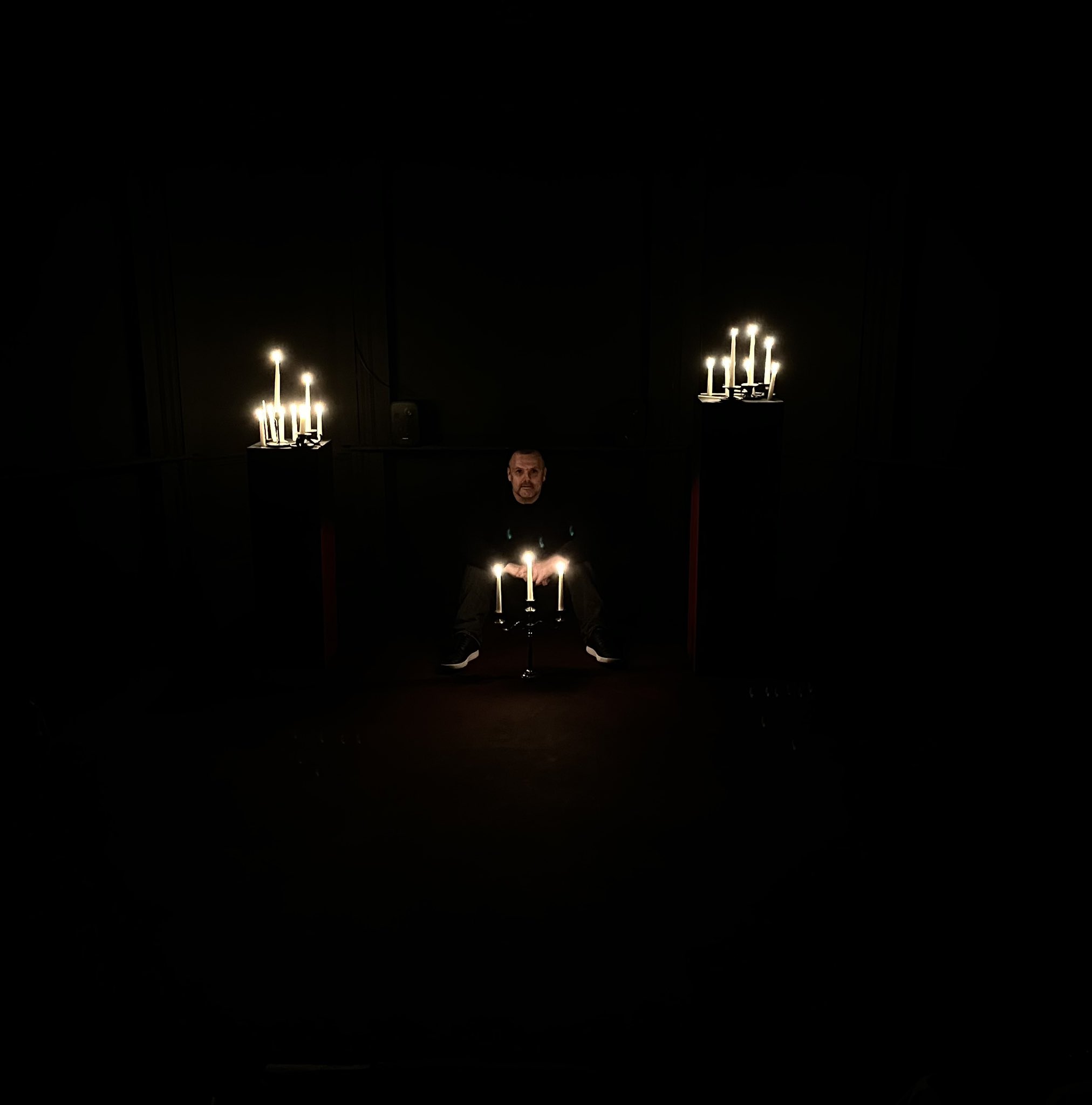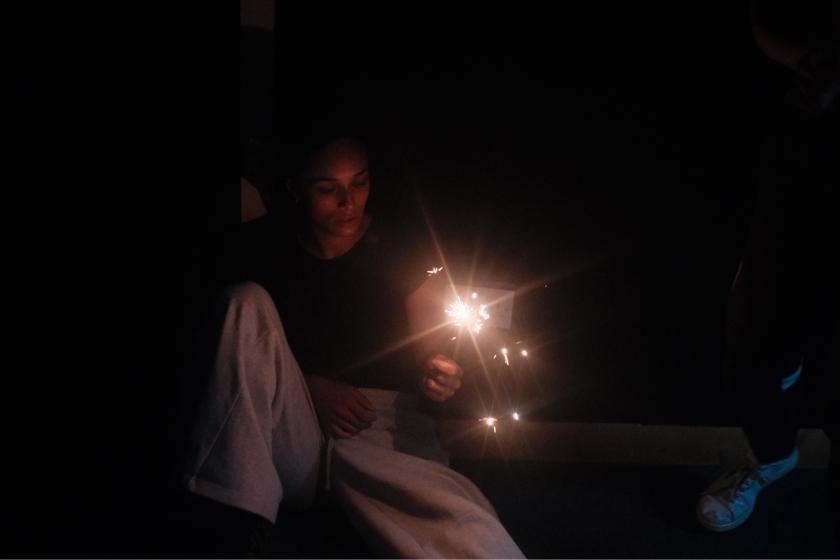Mac is in prison for a long stretch. He is calm, contemplative almost, understands how to do his time and has only one rule – nobody, cellmate or guard, can touch the photo of his daughter, then three years old, attached to his wall. Though he is a man who gets through the days with few problems, he solves them through violence. On his release, his only wish is to find the daughter who will have forgotten him.
Scratch (spiritual sister of Maxine in the playwright's 2022 monologue, Wolf Cub) is a wild child. With no mother (we soon guess why) and a father inside, she grows up in care and fights anyone, for fun she claims, but probably more for attention. She has a boyfriend, Ramon, but she’s not committed to him – not committed to anything or anyone really. Until she meets Jayjayjay, also living on the edges of society, but not as batshit crazy as Scratch – crazy in love with her though. Jayjayjay tries to deal with Scratch’s bipolar episodes, is thrilled by her gf’s unashamed embrace of transgression and is a little scared by it too. Rightly so, as it turns out. Ché Walker’s (pictured above) play has echoes of the work of Philip Ridley and Simon Stephens, but retains a lyricism all of its own. Cons don’t talk like this, nor do young women, but the play is not naturalistic. Its lighting is limited to candles, shifting us into as much a dream as an account of three lives wound around each other. The play is traumatic, but it's also seductive.
Ché Walker’s (pictured above) play has echoes of the work of Philip Ridley and Simon Stephens, but retains a lyricism all of its own. Cons don’t talk like this, nor do young women, but the play is not naturalistic. Its lighting is limited to candles, shifting us into as much a dream as an account of three lives wound around each other. The play is traumatic, but it's also seductive.
Some monologues (there are many in a 70 minutes runtime) may present on paper as verse, the rhythms of speech lulling you into a false sense of security, only to be shattered by another detail of life on the street or report of extreme violence. It’s a risky strategy – fall off that high wire with a misplaced metaphor, a clumsy simile or, more likely, an ill-advised didactic point hammered home too hard, and the play would be derailed. But Walker is an experienced playwright so, despite taking on directing and acting duties, he avoids that rookie mistake.
He is wonderfully well supported by his cast. Alice Walker grounds Jayjayjay with a personality that grows with her love for Scratch. She is still on the margins, but wants a more conventional life, more stability and a less wearying lot than to be attached to someone who is either closed off or conducting a 24/7 rebellion against everything and everybody. You see Jayjayjay's still centre, the kernel of a life that could work out.
But the hurricane that is Scratch swirls around Jayjayjay, an exciting, destructive, unhinged whirlwind that sweeps up, devours and disgorges everything in her path. Joanne Marie Mason has a tremendous part to play and delivers a tour de force performance making even the most horrific of acts plausible for this damaged girl. We worry for her, we understand how she got where she is and we wonder how she can ever be rescued – or even if rescue is the right verb, as she would undoubtedly contest it.
Like last year’s £1 Thursdays, the Finborough has found an urgent, contemporary play that uses the limitations of a fringe venue to amplify its characters and its emotions. You leave a little shaken and consider what, if anything, can be done with the Scratches and Macs who walk amongst us.
An essay in the programme suggests the usual measures to improve the rehabilitation of prisoners, but maybe it’s not about a bit more money here, a new initiative there, another stick, another carrot. Maybe we should accept the allure of transgression, and allow space for the likes of Jayjayjay to find an equilibrium in a complicated world, while ensuring that the tougher cases like Mac and Scratch are kept safe for their own sakes and for the protection of others – incarceration should surely be a last resort as it simply cascades the problems down the generations. But we’re a very long way from accepting those ideas, never mind funding the policies that grow out of them. These days, dehumanisation is far more populist - sorry, popular.
With more emphasis on the arts in education, this would be an ideal play to take into schools, but only if the teachers and their managers see it alongside the kids. The answers start there in the collective experience that leads to the commitment to collective solutions.













Add comment